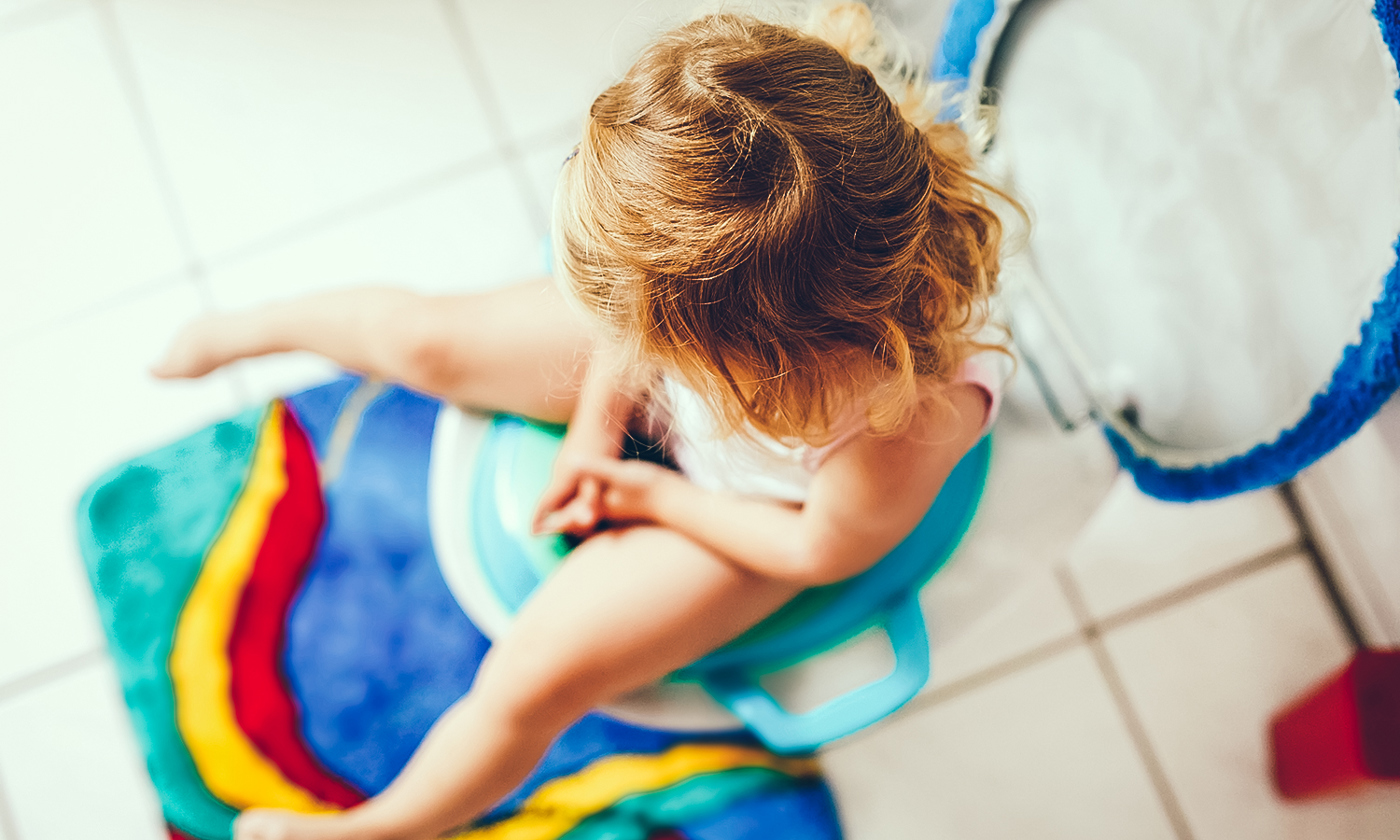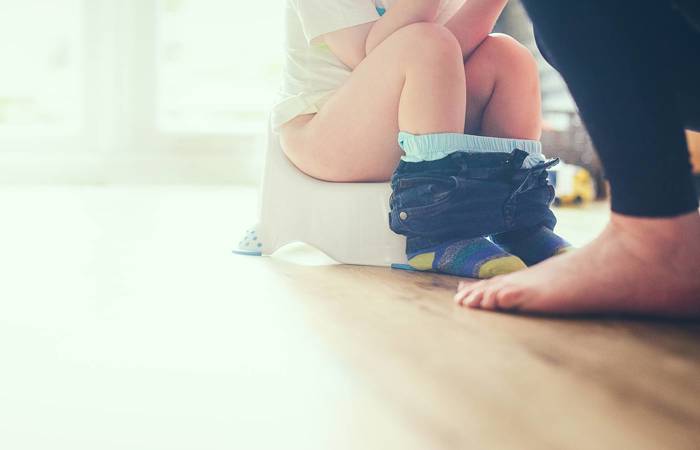Like what you see?
Sign up to receive more free parenting advice.
Thank you for subscribing to our newsletter!
Child Development

Credit: iStock.com/romrodinka
Toilet training can be a challenging time for parents, carers and children. Many parents are unsure about how and when to start toilet training. Other families feel pressure to get it right the first time. When you search for help about toilet training, the information can be overwhelming – how do you know what is right for you and your child?
As clinicians that have talked with thousands of children and their families about toileting, we have spent years developing the core strategies to support good toilet training habits. So, strap yourself in and let’s learn what we have discovered.
Making a start
Modern families choose to start toilet training for a variety of reasons. Here are some reasons we have collected:
- Knowing other children of similar age are toilet trained.
- To save money on the cost of nappies.
- A desire to cease nappy changes.
- Hoping to reduce nappy rash and skin irritation.
- To reduce the environmental impact of disposable nappies (did you know that it can take up to 500 years for a single nappy to decompose?) or washing cloth nappies.
- Seeing signs of readiness from your child.
- Getting used to childcare routines that support toileting.
- Preparing to transition out of a ‘toddler’ room at childcare, or getting ready for kindy without nappy change facilities.
- A desire to train your toddler before the arrival of a new baby brother or sister, or another family event.
Every family is different. It doesn’t matter which driver is most important to you. What is important is that you choose an approach and a reason that best suits you, your child and your family.
It goes without saying that there will be varying (and sometimes conflicting) advice that you’ll receive when embarking on toilet training. Advice may come from your parents, your friends, books or internet searches.
But after years of consulting with children and their families, we have learnt that the best method is not a one-size fits all approach – it’s something that supports your choices and individual circumstances. To assist, we’ve put together a flexible framework to set you and your child up for success – for calm, confident toilet training with a plan that can adjust to your needs.
There are always obstacles and problems along the way – and while having a plan is good, it’s important to be flexible when things don’t go to plan.Mars Clinic
Four Steps to Toilet Training Success
Keep your expectations real
Understanding a little more about how our children’s bodies work makes it easier to set realistic expectations of their capacity for toilet training. This includes a basic understanding of the development of their bladder and bowel control, their ability to understand and act on the ‘toilet’ signals from their body, and even their level of independence with managing the toilet process.
For example, children who train earlier will need more assistance with knowing when to stop playing to go to the toilet, undressing and wiping – it is unrealistic to expect a young toddler to manage everything independently.
Pre-Launch Preparation
Being prepared before you launch into toilet training will reduce stress and make the process much easier for both you and your child. But with so many different products and recommendations on the market, where do you start?
Your preparation will need to consider:
- Planning a suitable time for your family – you need to dedicate time at home with your child without significant other events.
- Going shopping for lots of undies and the equipment you need.
- Choosing the words and ways that you want to communicate about toileting.
- Having a cleaning kit at the ready – because there will be accidents.
3, 2, 1… Blast Off!
Having a plan for your first few days is important to make a good start. Getting yourself physically (and mentally!) prepared to guide your child is important. Whichever training method you choose, when the day comes, we recommend:
- Transitioning to underwear during waking hours during the day as much as possible.
- Being consistent in how you guide the process, so that your child can learn the steps of toileting.
- Choosing if you want to use rewards, and if you do, focussing on encouraging your child to complete the steps of toileting - not necessarily the success or failure of dry undies.
- When you do need to leave the house, be prepared!
“Houston, we have a problem…”
There are always obstacles and problems along the way – and while having a plan is good, it’s important to be flexible when things don’t go to plan. Be prepared for common problems, like:
- Your child not wanting to sit on the toilet.
- Having success with wees, but maybe not poos.
- Anxiety or nervousness around the toilet or fear of ‘flushing’.
Even when toilet training goes well, set-backs are common. Other factors in a toddler’s life (perhaps the arrival of a new baby sibling, moving house, a family event) can send your toilet training progress backwards. Deciding whether to persist, change your strategy or pull back is all part of the process.
Having support to turn to when things don’t go to plan is also important. You will have better days and worse days as your toddler learns, and sometimes it can be frustrating or disappointing. Keep your expectations realistic, and make use of your support network. While you may have support from other parents, grandparents, childcare educators, also remember that you can also reach out for professional assistance. You can talk with your GP or family doctor, or directly to the Children’s Continence experts at the Mars Clinic. The Mars Clinic offers online consultations as well as in-person support at our clinics – no problem is too small, and we have the expertise to help if you are worried about other continence problems down the track.
Want more assistance?
The experts from Mars Clinic are here to help you tackle toilet training with your toddler, so that you can understand the process and toilet train with confidence. We know that starting well can be important, and the more we can prevent problems, or treat them early, the better for children and families.
The Mars Clinic offers an Online Toilet Training Program to help parents through every step of your launch to toilet training, as well as the resources, checklists and printables to make it easy. It’s been created with busy parents in mind, cutting through the overwhelm of information to what you really need to know – but with the flexibility to suit your family’s approach. For more information, visit: https://www.marsclinic.com.au/toilet-training-program/








